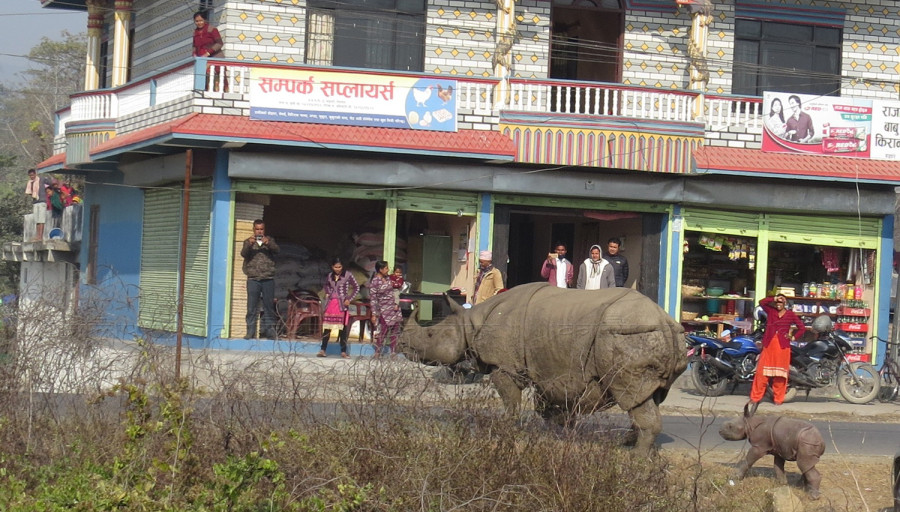National
Chitwan Park rhino delivers baby in human settlement
It’s not an unusual sight to see rhinoceros roaming the streets of Chitwan district as the Chitwan National Park (CNP) is home to a majority of Nepal’s endangered one-horned species.
Ramesh Kumar Paudel
It’s not an unusual sight to see rhinoceros roaming the streets of Chitwan district as the Chitwan National Park (CNP) is home to a majority of Nepal’s endangered one-horned species.
However, locals were left stunned on Friday morning when they saw a rhino with a new born calf in Bahraghare area of the district.
“The rhino had entered the settlement alone on Thursday evening. But we saw it coming out of the bush with a newly delivered calf at around 8 on Friday morning,” said Sharaswoti Shrestha, a resident of Bahraghare. They suspected that the rhino might have given birth to the baby near the settlement.
However, conservationists said the rhino along with its newborn baby could be quite aggressive. Naresh Subedi, senior officer at the National Trust for Nature Conservation, suggested the local people to be cautious of a possible attack from the mother rhino.
According to the locals, the forest does not have enough grass required for the rhinos so they enter the human settlements in search of food.
Rhino’s movement in the human settlements from Belchowk to Magalpur has increased significantly this year.
The local people have been demanding the CNP authorities to take necessary steps to stop rhinoceros from entering the settlements. Around 5-7 rhinoceros from the park regularly come to the village in search of food, they claimed.
According to the CNP, there are around seven-eight rhinos that frequently enter the settlements.
“Locals complain that the rhinos enter the settlements and destroy their crops. We are initiating efforts to prevent the rhinos from entering human settlements in the future,” said Bed Kumar Dhakal, chief conservation officer at the CNP. As per the latest census, there are 645 rhinos in the country, of which 605 are from the CNP alone.




 9.51°C Kathmandu
9.51°C Kathmandu1.jpg)














